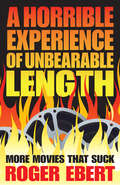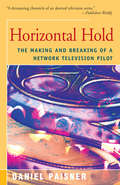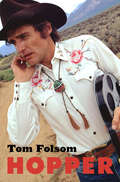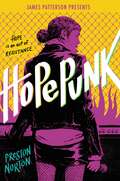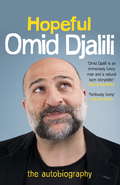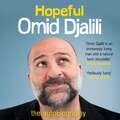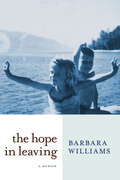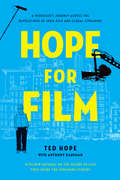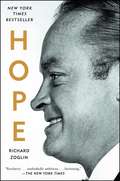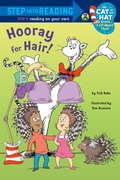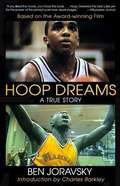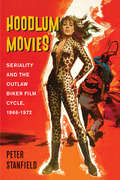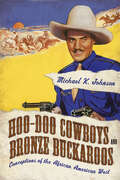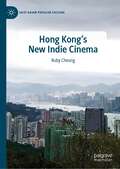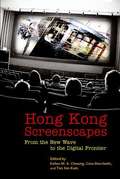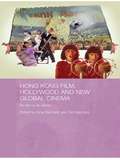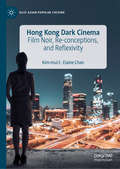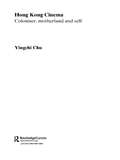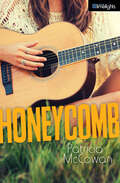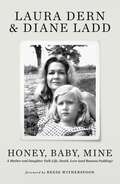- Table View
- List View
A Horrible Experience of Unbearable Length: More Movies That Suck
by Roger EbertMore of the Pulitzer Prize–winning film critic’s most scathing reviews.A Horrible Experience of Unbearable Length collects more than 200 of his reviews from 2006 to 2012 in which he gave movies two stars or fewer. Known for his fair-minded and well-written film reviews, Roger is at his razor-sharp humorous best when skewering bad movies. Consider this opener for the one-star Your Highness:“Your Highness is a juvenile excrescence that feels like the work of 11-year-old boys in love with dungeons, dragons, warrior women, pot, boobs, and four-letter words. That this is the work of David Gordon Green beggars the imagination. One of its heroes wears the penis of a minotaur on a string around his neck. I hate it when that happens.”And finally, the inspiration for the title of this book, the one-star Transformers: Revenge of the Fallen:“Transformers: Revenge of the Fallen is a horrible experience of unbearable length, briefly punctuated by three or four amusing moments. One of these involves a doglike robot humping the leg of the heroine. If you want to save yourself the ticket price, go into the kitchen, cue up a male choir singing the music of hell, and get a kid to start banging pots and pans together. Then close your eyes and use your imagination.”Roger Ebert’s I Hated, Hated, Hated This Movie and Your Movie Sucks, which gathered some of his most scathing reviews, were bestsellers. This collection continues the tradition, reviewing not only movies that were at the bottom of the barrel, but also movies that he found underneath the barrel. Movie buffs and humor lovers alike will relish this treasury of movies so bad that you may just want to see them for a good laugh!
A Horrible Experience of Unbearable Length: More Movies That Suck
by Roger EbertMore of the Pulitzer Prize–winning film critic’s most scathing reviews.A Horrible Experience of Unbearable Length collects more than 200 of his reviews from 2006 to 2012 in which he gave movies two stars or fewer. Known for his fair-minded and well-written film reviews, Roger is at his razor-sharp humorous best when skewering bad movies. Consider this opener for the one-star Your Highness:“Your Highness is a juvenile excrescence that feels like the work of 11-year-old boys in love with dungeons, dragons, warrior women, pot, boobs, and four-letter words. That this is the work of David Gordon Green beggars the imagination. One of its heroes wears the penis of a minotaur on a string around his neck. I hate it when that happens.”And finally, the inspiration for the title of this book, the one-star Transformers: Revenge of the Fallen:“Transformers: Revenge of the Fallen is a horrible experience of unbearable length, briefly punctuated by three or four amusing moments. One of these involves a doglike robot humping the leg of the heroine. If you want to save yourself the ticket price, go into the kitchen, cue up a male choir singing the music of hell, and get a kid to start banging pots and pans together. Then close your eyes and use your imagination.”Roger Ebert’s I Hated, Hated, Hated This Movie and Your Movie Sucks, which gathered some of his most scathing reviews, were bestsellers. This collection continues the tradition, reviewing not only movies that were at the bottom of the barrel, but also movies that he found underneath the barrel. Movie buffs and humor lovers alike will relish this treasury of movies so bad that you may just want to see them for a good laugh!
Horowitz: A Biography of Vladimir Horowitz
by Glenn PlaskinWell-researched, richly evocative and provocative biography of the legendary Russian pianist.
Hornblower's Ships: Their History and Their Models
by Martin SavilleHornblower stories was one of the most expensive series ever made for television. Millions went into the lavish special effects to recreate the epic sea battles featuring eleven fully working scale models.
Horizontal Hold: The Making and Breaking of a Network Television Pilot
by Daniel PaisnerAbsurdly funny, trenchant, and provocative, this outside-looking-in account of the stillbirth of one particular television series is a must read for every serious and not-so-serious television viewer.
Hopper
by Tom FolsomJames Dean to Hopper "I saw what you did today. Today you were great. " Jack Nicholson to Hopper "We're geniuses, you know that? Isn't it great to be a genius?" The chopper-riding hippie outlaw in Easy Rider. The prophetic madman in the jungle in Apocalypse Now. The terrifying psychopath in Blue Velvet. The kid gone wrong in Rebel Without a Cause. The actor taken under the wing of James Dean who longed to be the next Orson Welles. The hell-raising director who revolutionized Hollywood. An enigmatic man from Dodge City, Kansas, on an endless quest to realize the American Dream. Dennis Hopper has been described as a rebel, an icon, an addict plagued by demons, and one of the most important champions of the pop-art movement. Friend to Warhol, muse to David Lynch, mentor to Sean Penn, champion of Ice-T, Dennis Hopper built a career that was a half-century of rebellion waged at the edge of American popular culture. Tom Folsom's Hopper is a wild ride through Dennis's many lives. Featuring hundreds of interviews with Hopper's fellow actors, artists, musicians, and residents of Taos, New Mexico (where he spent much of his most manic time), as well as his ex-wives and many other people who knew him, Hopper takes you on an extraordinary-and sometimes troubling-journey. From Dennis's early days with his grandparents on a dusty farm in Kansas, where he watched trains go by on their way to Los Angeles, to his formative time in Hollywood as one of a bright new crop of actors straddling the edge of the studio system, to the rebellious 1960s and the start of the independent film movement, to the drug-addled 1970s and beyond, when Hopper staged one of the greatest Hollywood comebacks of all time-Tom Folsom has crafted a biography as unconventional as Dennis Hopper himself.
Hopepunk
by Preston NortonFollowing the disappearance of her sister, Hope Cassidy rebels against a life that once controlled her, as she learns about forgiveness and redemption—and how hope is the ultimate act of rebellion—in this heartfelt and funny novel. Growing up in a conservative Christian household isn&’t easy for rock-obsessed Hope Cassidy. She's spent her whole life being told that the devil speaks through Led Zeppelin, but it&’s even worse for her sister, Faith, who feels like she can&’t be honest about dating the record shop cashier, Mavis. That is, until their youngest sister hears word of their "sinful" utopia and outs Faith to their parents. Now there&’s nowhere for Faith to go but the Change Through Grace conversion center…or running away. Following Faith&’s disappearance, their family is suddenly broken. Hope feels a need to rebel. She gets a tattoo and tries singing through the hurt with her Janis Joplin-style voice. But when her long-time crush Danny comes out and is subsequently kicked out of his house, Hope can&’t stand by and let history repeat itself. Now living in Faith&’s room, Danny and Hope strike up a friendship...and a band. And their music just might be the answer to dethroning Alt-Rite, Danny&’s twin brother's new hate-fueled band. With a hilarious voice and an open heart, Hopepunk is a novel about forgiveness, redemption, and finding your home, and about how hope is the ultimate act of rebellion.
HOPEFUL – an autobiography: An Autobiography
by Omid DjaliliOmid Djalili's childhood was unconventional, to say the least. He was raised in a beautiful, chaotic, cramped, colourful and legally dubious guesthouse where his parents fed and watered Iranian nationals flocking to the UK. Over twenty years almost 2000 'cousins' passed through the Djalili's doors and the young Omid played translator to each. Although these years taught him a lot about the rich tapestry of life, this parenting by committee led to a slightly chequered school career which saw Omid taking his A levels a record six times and eventually fake his own university entrance papers. Desperate to be free of his cramped living quarters he escapes to the University of Ulster where he lives a life of wonderful solitude.Full of the warmth and intelligence that makes Omid such a successful comedian and sought-after actor, this memoir takes us on an incredible and laugh-out-loud funny journey through an unusually British life.
HOPEFUL – an autobiography
by Omid DjaliliOmid Djalili's childhood was unconventional, to say the least. He was raised in a beautiful, chaotic, cramped, colourful and legally dubious guesthouse where his parents fed and watered Iranian nationals flocking to the UK. Over twenty years almost 2000 'cousins' passed through the Djalili's doors and the young Omid played translator to each. Although these years taught him a lot about the rich tapestry of life, this parenting by committee led to a slightly chequered school career which saw Omid taking his A levels a record six times and eventually fake his own university entrance papers. Desperate to be free of his cramped living quarters he escapes to the University of Ulster where he lives a life of wonderful solitude.Full of the warmth and intelligence that makes Omid such a successful comedian and sought-after actor, this memoir takes us on an incredible and laugh-out-loud funny journey through an unusually British life.(P)2014 Headline Digital
The Hope in Leaving: A Memoir
by Barbara WilliamsHandsome Jack is a logger, nomad, and born dreamer. His young wife, Simone, has too many kids and never enough money to support or protect them. The family keeps on the move, shedding a grand total of twenty-seven homes. Their first child, Randy, is sensitive and brilliant and bold, protector of his younger siblings, the fearless star of their childhood adventures and misadventures--until something snaps inside him. The second child who comes a year after him, our narrator Barbara, is the lucky one, who can dream of getting out. Every time the family relocates, she feels "the hope in leaving and doing better next time."Poverty, mental illness, sexual abuse, and injustice pursue them wherever they go. They live small-town life hard and suffer, most of all Randy. The great surprise of The Hope in Leaving isn't that these characters descend increasingly into isolation and strife, but that despite this they remain a family, that there is always the spark of wit in their banter, and a kind of closeness no matter what happens, even a sense of normalcy. Gradually, the reader comes to understand why The Hope in Leaving is a book that had to be written. In it, Williams proves beyond doubt that there is one thing that can survive the worst of life and even death itself: love without judgment.From the Hardcover edition.
Hope for Film: From the Frontline of the Independent Cinema Revolutions
by Ted HopeAn inspiring, tell-all look at the indie film business from one of the industry's most passionate producers, Hope for Film captures the rebellious punk spirit of the indie film boom in 1990s New York City, its collapse two decades later and its current moment of technology-fueled regeneration. Ted Hope, whose films have garnered 12 Oscar nominations, draws from his own personal experiences working on the early films of Ang Lee, Eddie Burns, Hal Hartley, Michel Gondry, Nicole Holofcener, Todd Solondz and other indie mavericks, relating those decisions that brought him success as well as the occasional failure.Whether navigating negotiations with Harvey Weinstein over final cuts or clashing with high-powered CAA agents over their clients, Hope offers behind-the-scenes stories from the wild and often heated world of low-budget cinema-where art and commerce collide. As mediator between these two opposing interests, Hope offers his unique perspective on how to make movies while keeping your integrity intact and how to create a sustainable business enterprise out of that art while staying true to yourself. Against a backdrop of seismic changes in the indie-film industry, from corporate co-option to the rise of social media, Hope for Film provides not only an entertaining and intimate ride through the ups and downs of the business of art-house movies over the last 25 years, but also hope for its future.
Hope: Entertainer of the Century
by Richard ZoglinThe first definitive biography of Bob Hope, featuring exclusive and extensive reporting that makes the persuasive case that he was most important entertainer of the twentieth century.Born in 1903, and until his death in 2003, Bob Hope was the only entertainer to achieve top-rated success in every major mass-entertainment medium, from vaudeville to television and everything in between. He virtually invented modern stand-up comedy. His tours to entertain US troops and patriotic radio broadcasts, along with his all-American, brash-but-cowardly movie character, helped to ease the nation's jitters during the stressful days of World War II. He helped redefine the very notion of what it means to be a star: a savvy businessman, pioneer of the brand extension (churning out books, writing a newspaper column, hosting a golf tournament), and public-spirited entertainer whose Christmas military tours and tireless work for charity set the standard for public service in Hollywood. But he became a polarizing figure during the Vietnam War, and the book sheds new light on his close relationship with President Richard Nixon during those embattled years. Bob Hope is a household name. However, as Richard Zoglin shows in this revelatory biography, there is still much to be learned about this most public of figures, from his secret first marriage and his stint in reform school, to his indiscriminate womanizing and his ambivalent relationship with Bing Crosby and Johnny Carson. Hope could be cold, self-centered, tight with a buck, and perhaps the least introspective man in Hollywood. But he was also a dogged worker, gracious with fans, and generous with friends. Hope is both a celebration of an entertainer whose vast contribution has never been properly appreciated, and a complex portrait of a gifted but flawed man, who, unlike many Hollywood stars, truly loved being famous, appreciated its responsibilities, and handled celebrity with extraordinary grace.
Hooray for Hair! (Step into Reading)
by Tom Brannon Tish RabeThe Cat in the Hat goes on a hairy adventure in this leveled reader for independent readers all about--what else?--hair! It's Crazy Hair Day at Sally and Nick's school, and the kids can't pick a style to wear. Curly or straight? Long or short? It's too hard to choose--until the Cat in the Hat arrives with his Wig-o-lator--a machine that allows the kids to "try on" the hairstyles of a yak, a fur seal, and a porcupine, with comical (and educational) results! Written specifically for children learning to read on their own, this Step 3 book is based on an episode of the hit PBS Kids' TV show The Cat in the Hat Knows a Lot About That! Young readers will flip their wigs over it!
Hoop Dreams: A True Story of Hardship and Triumph
by Ben JoravskyAward-winning journalist Ben Joravsky vividly brings to life all the richness and subtlety of the experiences of Arthur Agee and William Gates, two gifted urban hoopsters determined to make it to the NBA, in this intimate, suspenseful, and heart-wrenching adaptation of the award-winning film documentary.
Ho'onani Hula Warrior
by Heather GaleAn empowering celebration of identity, acceptance and Hawaiian culture based on the true story of a young girl in Hawai?i who dreams of leading the boys-only hula troupe at her school. Ho'onani feels in-between. She doesn't see herself as wahine (girl) OR kane (boy). She's happy to be in the middle. But not everyone sees it that way. When Ho'onani finds out that there will be a school performance of a traditional kane hula chant, she wants to be part of it. But can a girl really lead the all-male troupe? Ho'onani has to try... Based on a true story, Ho'onani: Hula Warrior is a celebration of Hawaiian culture and an empowering story of a girl who learns to lead and learns to accept who she really is and in doing so, gains the respect of all those around her. Ho'onani's story first appeared in the documentary A Place in the Middle by filmmakers Dean Hamer and Joe Wilson.
Hoodlum Movies: Seriality and the Outlaw Biker Film Cycle, 1966-1972
by Peter StanfieldFrom The Wild Angels in 1966 until its conclusion in 1972, the cycle of outlaw motorcycle films contained forty-odd formulaic examples. All but one were made by independent companies that specialized in producing exploitation movies for drive-ins, neighborhood theaters, and rundown inner city theaters. <P><P>Despised by critics, but welcomed by exhibitors denied first-run films, these cheaply and quickly produced movies were made to appeal to audiences of mobile youths. The films are repetitive, formulaic, and eminently forgettable, but there is a story to tell about all of the above, and it is one worth hearing. <P><P>Hoodlum Movies is not only about the films, its focus is on why and how these films were made, who they were made for, and how the cycle developed through the second half of the 1960s and came to a shuddering halt in 1972.
Hoo-Doo Cowboys and Bronze Buckaroos: Conceptions of the African American West (Margaret Walker Alexander Series in African American Studies)
by Michael K. JohnsonHoo-Doo Cowboys and Bronze Buckaroos undertakes an interdisciplinary exploration of the African American West through close readings of texts from a variety of media. This approach allows for both an in-depth analysis of individual texts and a discussion of material often left out or underrepresented in studies focused only on traditional literary material. The book engages heretofore unexamined writing by Rose Gordon, who wrote for local Montana newspapers rather than for a national audience; memoirs and letters of musicians, performers, and singers (such as W. C. Handy and Taylor Gordon), who lived in or wrote about touring the American West; the novels and films of Oscar Micheaux; black-cast westerns starring Herb Jeffries; largely unappreciated and unexamined episodes from the "golden age of western television" that feature African American actors; film and television westerns that use science fiction settings to imagine a "postracial" or "postsoul" frontier; Percival Everett's fiction addressing contemporary black western experience; and movies as recent as Quentin Tarantino's Django Unchained.Despite recent interest in the history of the African American West, we know very little about how the African American past in the West has been depicted in a full range of imaginative forms. Hoo-Doo Cowboys and Bronze Buckaroos advances our discovery of how the African American West has been experienced, imagined, portrayed, and performed.
Honky Tonk Angel: the Intimate Story of Patsy Cline
by Ellis NassourEarthy, sexy, and vivacious, the life of beloved country singer, Patsy Cline, who soared from obscurity to international fame to tragic death in just thirty short years, is explored in colorful and poignant detail. An innovator—and even a hell-raiser—Cline broke all the boys’ club barriers of Nashville’s music business in the 1950s and brought a new Nashville sound to the nation with her pop hits and torch ballads like “Walking After Midnight,” “I Fall to Pieces“ and "Crazy.” She is the subject of a major Hollywood movie and countless articles, and her albums are still selling 45 years after her death. Ellis Nassour was the very first to write about Cline and did so with the cooperation of the stars who knew and loved her—including Jimmy Dean, Jan Howard, Brenda Lee, Loretta Lynn, Roger Miller, Dottie West, and Faron Young. He was the only writer to interview Cline's mother and husbands.
Hong Kong's New Indie Cinema (East Asian Popular Culture)
by Ruby CheungThis book explores 2010s Hong Kong film industry, focusing on its (presumably) independent sector. Although frequently mentioned in global film industry studies, the term ‘independent film’ does not always carry a clear meaning. Starting with this point, this book studies closely Hong Kong’s new indie cinema of the 2010s from political, economic, social, cultural, and film industrial perspectives, arguing that this indie cinema was vital to the long-term sustainability of the city’s film industry.
Hong Kong Screenscapes
by Esther M.K. CheungGlobal connections and screen innovations converge in Hong Kong
Hong Kong Film, Hollywood and New Global Cinema: No Film is An Island (Media, Culture and Social Change in Asia)
by Gina Marchetti Tan See KamIn recent years, with the establishment of the Hong Kong Film Archive and growing scholarly interest in the history of Hong Kong cinema, previously neglected historical documents and difficult-to-access films have offered new research materials. As Hong Kong film history comes into sharper focus, its inextricable links across the decades to Southeast Asia, Korea, Japan, the United States, and to the far reaches of the Chinese diaspora have also become more evident. Hong Kong’s connection with Hollywood involves ties that bring together art cinema and popular genres as well as film festivals and the media marketplace with popular transnational genres. Giving fresh and facsinating insights into the vibrant area of Hong Kong, this exciting new book links Hong Kong with world film culture both within and beyond the commercial Hollywood paradigm. It emphasizes Hong Kong film in relation to other cinema industries, including Hollywood, and demonstrates that Hong Kong film, throughout its history, has challenged, redefined, expanded, and exceeded its borders.
Hong Kong Dark Cinema: Film Noir, Re-conceptions, and Reflexivity (East Asian Popular Culture)
by Kim-Mui E. ChanThis book is a scholarly investigation of the historical development and contemporary transformation of film noir in today’s Hong Kong. Focusing on the evolvement of cinematic narratives, aesthetics, and techniques, the author balances a deep reading of the multiple filmic plots with a discussion of the cinematic portrayals of gender, romance, identities and power relations. Nuancing the prototypical cinematic form and tragic sense of classical film noir, the recent Hong Kong cinema turns around the classical generic role of film noir at the turn of the century to convey very different messages—joy, hope or love. This book examines how the mainstream cinema, or pre-and-post-Hong Kong cinema in particular, applies a peculiar strategy that makes rooms for the audience to enjoy a pleasure-giving process of reflexivity and also critique the mainstream ideology. With new analytical approaches and angles, this book breaks new ground in offering transcultural and cross-genre analyses on the cinema and its impact in local and international markets. This book is the first major scholarly investigation of the historical development and contemporary transformation of film noir in today’s Hong Kong. Focusing on the evolvement of cinematic narratives, aesthetics, and techniques, the author balances a deep reading of the multiple filmic plots with a refreshing discussion of the cinematic portrayals of gender, romance, identities and power relations. This book also revisits conceptual categories developed by Foucault, Lacan, Derrida and Butler.
Hong Kong Cinema: Coloniser, Motherland and Self
by Yingchi ChuExamining Hong Kong cinema from its inception in 1913 to the end of the colonial era, this work explains the key areas of production, market, film products and critical traditions. Hong Kong Cinema considers the different political formations of Hong Kong's culture as seen through the cinema, and deals with the historical, political, economic and cultural relations between Hong Kong cinema and other Chinese film industries on the mainland, as well as in Taiwan and South-East Asia. Discussion covers the concept of 'national cinema' in the context of Hong Kong's status as a quasi-nation with strong links to both the 'motherland' (China) and the 'coloniser' (Britain), and also argues that Hong Kong cinema is a national cinema only in an incomplete and ambiguous sense.
Honeycomb (Orca Limelights)
by Patricia McCowanWhen Nat, her best friend Jess and singing-star wannabe Harper sing together, their harmonies bring down the house. For Nat, the experience sparks a driving new desire to perform. But when the girls form a trio and enter a contest for a chance to play at the Tall Grass Music Festival, Nat finds that harmony—musical and otherwise—is hard to maintain. Her bandmates almost never agree, her new boyfriend starts behaving more like a non-boyfriend, and the trio’s famous-musician mentor doesn’t even like the way Nat breathes. Every day, Nat’s dream of performing at Tall Grass seems farther away, and she questions whether she has what it takes to get there.
Honey, Baby, Mine: LAURA DERN AND HER MOTHER DIANE LADD TALK LIFE, DEATH, LOVE (AND BANANA PUDDING)
by Laura Dern Diane Ladd'it is wonderful... raw, gossipy, funny, delicate, endlessly compassionate, at moments devastating, at others spectacularly wise' THE TIMES'This is the best, truest, most shocking Hollywood memoir I've ever read' SUNDAY TELEGRAPH*WITH A FOREWORD BY REESE WITHERSPOON*Actress Laura Dern and her mother - the legendary actress Diane Ladd - share their most intimate and important conversations. What happens when we are brave enough to speak our truths to the ones we love the most?Laura Dern and Diane Ladd always had a close relationship, but the stakes were raised when Diane developed a sudden life-threatening illness. Diane's doctor prescribed long walks to build back her lung capacity. The exertion was challenging, and Laura soon learned the best way to distract her mom was to get her talking and telling stories. Their conversations along the way began to break down the traditional barriers between mothers and daughters. They discussed the most personal topics: love, sex, marriage, divorce, art, ambition, and legacy. In Honey, Baby, Mine, Laura and Diane share these conversations, as well as reflections and anecdotes, taking readers on an intimate tour of their lives. Complementing these candid exchanges, they have included photos, family recipes, and other mementos. The result is a celebration of the power of leaving nothing unsaid that will make you want to call the people you love the most and start talking.
